EU Council Adopts FuelEU Maritime Law

More renewable and low-carbon fuels will reduce the carbon footprint of the maritime sector in the EU following the adoption of the FuelEU Maritime initiative by the EU Council.The main objective of the FuelEU maritime initiative, as a key part of the EU’s Fit for 55 package, is to increase the demand for and consistent use of renewable and low-carbon fuels and reduce the greenhouse gas emissions from the shipping sector, while ensuring the smooth operation of maritime traffic…
EU Aligns Ferry Safety Legislation With IMO
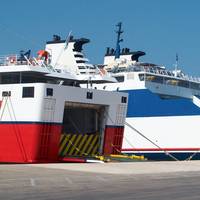
The European Council has adopted a new law to improve stability requirements for ro-ro ferries.The proposal to revise the existing directive originated from maritime accidents, such as the sinking of the Estonia in 1994. Ut It now ensures, as far as possible, consistency with the applicable international standards for the stability of damaged passenger ships recently updated in SOLAS - the IMO has introduced a probability of survival after a collision model for assessing the survivability of damaged ro-ro passenger ships…
European Council Adopts Fit for 55 Amendment to Include Shipping
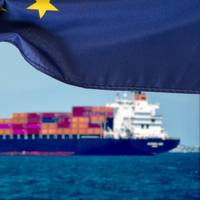
The European Council has adopted five laws that are part of the Fit for 55 package, including the amendment to include shipping in the EU emissions trading system (ETS).The package sets the EU’s policies in line with its commitment to reduce its net greenhouse gas emissions by at least 55% by 2030 compared to 1990 levels and to achieve climate neutrality in 2050.The vote in the Council is the last step of the decision-making procedure. The laws will now be signed by the Council and the European Parliament and published in the EU’s Official Journal before entering into force.After that time…
EU Bans New Insurance of Ships Carrying Russian Oil
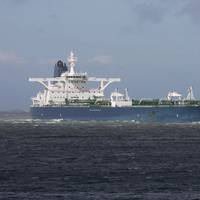
The European Union's sixth package of sanctions against Russia, approved on Thursday, includes an immediate ban on new insurance contracts for ships carrying Russian oil and existing contracts are to be phased out over 6 months, an EU official said."It is a 6-month phase out for ship insurance. The six months are counted from the entry into force of the sanctions package, and it is only for existing contracts.
Russian Billionaire's Yacht Stuck in Hamburg Shipyard
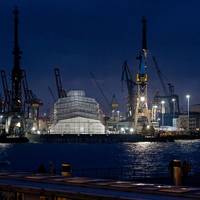
A luxury yacht linked to Russian billionaire Alisher Usmanov, who faces EU sanctions over Russia's invasion of Ukraine, is sitting in a shipyard in the German port of Hamburg and local authorities said there were no plans to deliver it to its owner.Hamburg authorities denied that they had seized the more-than-500-foot (150 meter) Dilbar superyacht, which boasts a 25-meter swimming pool and is worth nearly $600 million. Forbes had reported on Wednesday that it had been undergoing…
EU Invests in Border Security, Coast Guard
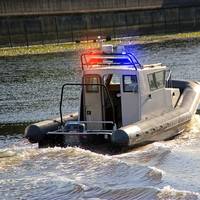
The European Union Council officially adopted the Commission's proposal to reinforce the European Border and Coast Guard, an agency that will acquire its own equipment, such as vessels, planes and vehicles, a will have a standing corps of 10,000 border guards. The move was announced to respond to the challenges facing Europe in managing migration and its external borders.“Today the European Union has achieved an ambitious task of transforming the EU border agency, Frontex, into a fully-fledged European Border and Coast Guard.
EU Updates List of Ship Recycling Facilities
European Commission adopted a new Decision amending Implementing Decision (EU) to update the European List of ship recycling facilities. The said decision has been published on Monday in the Official Journal of the EU.With the 4th version of the list, the European Commission and the Member States add 6 new facilities to the list. These include, for the first time, 3 facilities which are located outside the EU -2 in Turkey and 1 in the United States-. The European Shipowners are fully supporting the expansion of the EU list, and in particular the inclusion of compliant facilities worldwide. From 31st December 2018, the EU Ship Recycling…
EU Council Adopts Port Reform
On 23 January, the Council of Ministers adopted the Port Regulation, which concludes the procedure at first reading. The European Parliament voted on 14 December 2016. The legal act will be signed by both institutions in mid-February and published in the EU Official Journal a few weeks later. It will enter into force 20 days after its publication. The principles set out in the Regulation will apply 2 years after the entry into force. This means that by March 2019 these rules will have to be applied in all TEN-T ports of the European Union. The regulation will make it easier for new providers of certain port services to enter the market. It will create a more level playing field and reduce legal uncertainties for ports, port service providers and investors.
EU Re-imposes Sanctions on Iranian Bank, Shipping Firms
The European Union re-imposed sanctions on an Iranian bank and 32 Iranian shipping companies on Wednesday, using new legal grounds, after the measures were struck down by a European court. The EU's second highest court annulled an EU asset freeze on Bank Tejarat and 40 Iranian shipping companies in January, finding fault with the legal grounds given by the EU. The EU, as it has done in other cases, responded by re-listing Bank Tejarat and 32 of the Iranian shipping firms using new legal grounds. Eight firms were not put back on the list published in the EU's Official Journal on Wednesday. The decision comes days after Iran and six major powers reached a framework agreement to end a dispute over Iran's nuclear activities which prompted the sanctions. Reporting by Adrian Croft
Iranian Oil Tanker Blacklisted by EU
During a meeting in Brussels on Thursday 12 February, members of European Union decided to sanction again the Iranian Oil Tanker Company which is transporting oil around the globe. The EU's second-highest court ruled last July there were no grounds to blacklist the National Iranian Tanker Company (NITC), Iran's biggest tanker firm, after it contested the designation. Hence the EU moved to re-impose sanctions on tighter legal grounds, says a Reuters report. The regulation will be published in the EU's Official Journal on Saturday. NITC - a major transporter of Iran's oil - contested the EU's original blacklisting last year, arguing that the firm is privately owned by Iranian pension funds. It has denied any links with the Iranian government or with the Revolutionary Guards.
Legislation Grants Funding for EU's EMSA
The European Union Council adopted a regulation yesterday to finance the actions of the European Maritime Safety Agency (EMSA) in the field of response to marine pollution caused by ships and oil and gas installations in the years 2014-2020. Yesterday’s final adoption of the legislative act by the Council follows an agreement reached at first reading with the European Parliament earlier this year. The regulation will enter into force on the day after its publication in the EU Official Journal, which is expected to take place within the next few days. It will apply retroactively, from January 1, 2014 to December 31, 2020. The financial envelope for EMSA's tasks for the period from January 1, 2014 to December 31, 2020 will be EUR 160.5 million expressed in current prices.
New EU Rules for Waste Shipments
The Council of the European Union (EU) adopted a regulation amending regulation 1013/2006 on shipments of waste, which lays down requirements for shipments of waste within the EU and between the EU and third countries in order to protect human health and the environment (PE-CO S 69/14, 8792/14 ADD1). The new regulation contains strengthened measures to ensure more uniform implementation of the waste shipment regulation throughout the EU. By January 1, 2017, member states will have to establish inspection plans, which must include the objectives and priorities of the inspections, the geographical area covered by the inspection plans and the tasks assigned to each authority involved in the inspections. The inspection plans must be based on a risk assessment.
State Aid to Saremar Ruled Illegal
After an in-depth investigation, the European Commission has concluded that part of the support measures that Sardinia had granted to the maritime company Saremar in 2011 and 2012 was incompatible with EU state aid rules. In particular, a capital injection not approved on market conditions and the compensation for carrying out certain maritime services have provided an undue economic advantage to Saremar that its competitors did not have. Saremar needs to pay back this undue advantage of around €10.8 million in total, to remedy the distortion of competition this has created. At the same time the Commission concluded that two letters of comfort issued by the Region did not guarantee any financial obligation of the company and did not therefore constitute State aid to Saremar.
New European Regs on Ship Recycling
The new European Regulation on ship recycling (Regulation (EU) No 1257/2013) was published on December 10, 2013 in the Official Journal of the European Union and it will enter into force on December 30, 2013. In view of the international importance of the new Regulation GMS followed very closely and contributed advice towards its development. It is paramount that the implementation of the new Regulation by the European Commission in the next two years will be guided by realism and a clear understanding of the dynamics of the industry, and not by the impractical, not thought-out, and irrational campaigns to ban beaching. Over this period the industry will need to be alert so as to contribute its knowledge and guidance to the European Commission.
Belgium Allows Private Armed Guards on Ships
With the publication of the law on various measures concerning the fight against maritime piracy in the Belgian official journal, the use of private security on board Belgian flagged ships is allowed. As a result, from now on ship-owners have the ability to continue their activities in the known piracy high risk areas with assurance of adequate protection of their crew. In this way, the RBSA wishes to express her appreciation regarding the Belgian government for the efforts which resulted in a law that meets the needs of the ship-owners. Belgium follows the example of many other international and European flag states including Norway, Sweden, Denmark, Spain, Luxemburg, Italy and Cyprus.
EMSA to Launch Tender for Stand-by Oil Spill Recovery Vessels
The European Maritime Safety Agency (EMSA) has launched, in addition to the earlier announced tender for the Black and North Sea areas, a second procurement procedure to conclude contracts for stand-by oil spill recovery vessels along the Atlantic European coastal area (from Porto, Portugal to and including Brest, France). The 2008 second tender will establish 3 year renewable contracts with commercial shipowners and/or operators and/or spill response organisations and/or manufacturers. The related “Contract Notice”, published on 20th May in the Supplement to the Official Journal of the European Union (OJEU), has the associated “Invitation to Apply” deadline of 27th June. Source: EMSA
EU Adopts Accelerated Phase-Out of Single-Hull Tankers
Taking a page from OPA 90, the European Union has officially adopted its unilateral plan for accelerated phase-out of single-hull tankers. The regulation was published in the October 1 edition of the Official Journal of the European Union and comes into effect on October 21, 2003. It provides for, among other things, the immediate ban on transport of heavy grades of oil in single-hull oil tankers of 5,000 dwt or above to or from EU ports and the accelerated phase-out of single-hull oil tankers on a schedule tied to the ship’s MARPOL category. The impact of this unilateral action on the upcoming IMO meeting to review the MARPOL phase-out schedule is unclear at this time.
Single-hull Tankers Banned from October 21
The Regulation banning single-hull oil tankers from European ports has been published in the Official Journal(1) and entered into force October 21, 2003. From that date single-hull oil tankers may not be used to carry heavy grades of oil to or from EU ports. In addition, the timetable for the phasing-out of such tankers has been speeded up, and oil tankers more than 23 years old, as the Erika and the Prestige were, are banned from EU ports immediately. During the gradual phasing-out period, tankers 15 or more years old will undergo exhaustive technical inspections. The EU is now focusing on the international arena in order to have similar measures introduced by everyone concerned.
EU Agrees Strategy to Counter Korean Shipbuilding Practices
Today the Council of the EU approved the twin-track strategy proposed by the European Commission to counter unfair Korean practices in the shipbuilding sector. The EU has set a deadline of the end September to resolve the dispute amicably, failing which it will immediately launch procedures for a Panel against Korea in WTO and activate a temporary defensive mechanism (TDM) for European shipbuilding. The Commission will now hold a series of further negotiations with Korean authorities in an attempt to restore normal trading practices in this sector. Welcoming the decision, EU Trade Commissioner Pascal Lamy said "Korea now knows that if we fail to resolve this dispute in the few weeks between now and the end of September…
EU Discusses Maritime Safety
Since the Erika ran aground, the European Union has made considerable progress towards improving maritime safety. Adoption of the measures of the Erika I package and most of those of the Erika II package is a major step towards putting effective rules into place to increase maritime safety and to counter the risks of oil spills. Thanks to these measures substandard ships and floating rust buckets should disappear from Europe's waters within two years. "The EU now has one of the best sets of maritime safety rules in the world, and these measures must be put into place with the utmost resolution and speed. The Commission, for its part…
EU Requests Establishment of WTO Panel Over Korean Shipbuilding Practices
The European Commission has requested the WTO's Dispute Settlement Body (DSB) to set up a Panel over the unfair Korean shipbuilding practices, at its next regular meeting of 24 June. This decision has been taken further to the failure of bilateral and or WTO consultations to reach an amicable solution to this long-standing dispute. EU Trade Commissioner Pascal Lamy said: "It is regrettable that Korea has shown no real will to resolve the issue in an amicable manner. In particular, we deplore the fact that Korea has failed to respect its commitments under the bilateral Agreement with the EU signed in June 2000 (the so-called Agreed Minutes). Furthermore Korea has made no efforts to find a solution during the three rounds of WTO consultations which have taken place since October 2002.
News: EU Single-Hull Phase-Out Elicits IMO Scorn
Taking a page from OPA 90, the European Union has officially adopted its unilateral plan for accelerated phase-out of single-hull tankers. The regulation was published in the October 1 edition of the Official Journal of the European Union and came into effect on October 21, 2003. It provides for, among other things, the immediate ban on transport of heavy grades of oil in single-hull oil tankers of 5,000 dwt or above to or from EU ports and the accelerated phase-out of single-hull oil tankers on a schedule tied to the ship's MARPOL category. The move drew immediate negative reaction from the International Maritime Organization (IMO), an organization which generally frowns upon such national or regional action. In a statement released October 23, Secretary-General of IMO, William A.
EU Double Hull Legislation Signed
The President of the European Parliament, Hans-Gert Pöttering, officially signed a European Parliament and Council Regulation that represents an important response to offshore tanker accidents and will lead to better protection of the seas and the environment. Under the new regulation, oil tankers transporting heavy oils will only be allowed to fly the flag of a European Union member state if they are double hulled. In addition, regardless of what flag they are flying, only double hulled tankers will be able to enter member states’ harbors or anchor in their territorial waters. The regulation is directly applicable in all the Member States and, now that it has been signed, will enter into force on the twentieth day after its publication in the Official Journal of the European Union.





